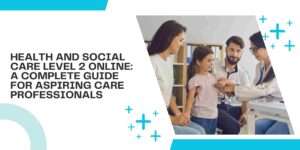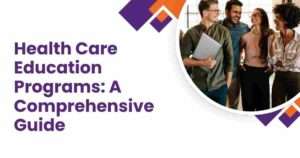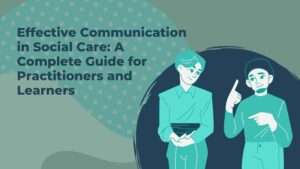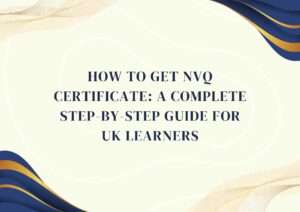Table of Contents
- Introduction to the Health and Social Care Access Course
- What Is an Access to HE Diploma in Health and Social Care?
- Who Should Take a Health and Social Care Access Course?
- Why Choose an Access Course Over Traditional Routes?
- Course Structure and Learning Modules
- Entry Requirements and Prerequisites
- Study Modes: Online vs. In-Person
- Duration of the Health and Social Care Access Course
- What Will You Learn in the Course?
- Key Skills You’ll Develop
- Assessment Methods and Assignments
- Accreditation and Recognition
- Career Opportunities After Completing the Course
- Pathways to Higher Education (Nursing, Social Work, etc.)
- Funding Options and Financial Support
- Benefits of Studying Online Health and Social Care Access Course
- Best Online Providers in the UK
- How to Choose the Right Course Provider
- Student Testimonials and Real-Life Success Stories
- FAQs About the Health and Social Care Access Course
- Final Thoughts: Is This Course Right for You?
1. Introduction to the Health and Social Care Access Course
The health and social care access course is a transformative gateway for individuals seeking to enter the world of healthcare or social services without traditional A-level qualifications. Whether you’re changing careers, returning to education, or pursuing a long-held dream of helping others, this course is designed to prepare you for higher education and a rewarding future in caring professions.
With the growing demand for qualified professionals in health and social care across the UK, especially in the wake of an aging population and evolving healthcare needs, there has never been a better time to begin this journey. This article will walk you through everything you need to know about the health and social care access course, from structure and benefits to career prospects and more.
2. What Is an Access to HE Diploma in Health and Social Care?
The Access to Higher Education (HE) Diploma in Health and Social Care is a nationally recognized qualification in the UK designed for adults who wish to attend university but do not have the traditional qualifications required for direct entry.
This diploma provides a foundational understanding of topics such as:
- Human biology and physiology
- Health studies
- Social care practices
- Psychology and sociology
- Communication in health and social care
It is equivalent to A-levels and is accepted by many universities as part of their entry requirements for courses like nursing, midwifery, occupational therapy, social work, and other health-related degrees.
The course aims to equip learners with the academic skills, subject knowledge, and confidence needed to thrive at university.
3. Who Should Take a Health and Social Care Access Course?
The course is ideal for:
- Adults over 19 returning to education
- People working in care who want to pursue professional qualifications
- Career changers aiming to enter the health sector
- Individuals without A-levels or traditional academic backgrounds
Whether you’re a healthcare assistant looking to become a nurse, or a retail worker dreaming of becoming a social worker, this course offers a realistic path to higher education and beyond.
It’s also suited to parents, carers, or anyone who had their education interrupted and is now ready to make a fresh start.
4. Why Choose an Access Course Over Traditional Routes?
Choosing a health and social care access course offers several advantages over traditional A-levels:
Flexibility
Many providers offer online, part-time options that allow learners to balance study with work and family life.
Accelerated Learning
Unlike A-levels which typically take two years, an Access to HE course can often be completed within 9-12 months.
Tailored Curriculum
The curriculum is focused specifically on health and social care, so you learn what’s relevant to your future studies and career.
Supportive Environment
Access courses are designed for adult learners, meaning you’ll be supported by tutors who understand the challenges of returning to education later in life.
5. Course Structure and Learning Modules
The health and social care access course usually comprises:
- Core modules: Academic writing, research, study skills
- Subject-specific modules: Biology, health promotion, psychology, social policy, ethics
- Optional modules: Depending on the provider, may include public health, mental health, and safeguarding
Each module is broken into units, with credits assigned upon successful completion. You must accumulate a specific number of credits (typically 60) to earn the diploma.
This structured format ensures that by the end of the course, you’re not only knowledgeable but also confident and prepared for university-level study.
6. Entry Requirements and Prerequisites
You don’t need traditional academic qualifications to enroll in a health and social care access course, but some providers may expect:
- GCSEs in English and/or Maths (or equivalent)
- A basic level of literacy and numeracy
- A commitment to study and complete assessments
- An interview or written statement explaining your motivation
If you lack GCSEs, some providers offer functional skills courses alongside the access course to help meet university entry requirements.
7. Study Modes: Online vs. In-Person
One of the biggest decisions you’ll make is whether to study online or in a classroom setting.
Online Study:
- Learn from anywhere, at any time
- Ideal for learners with work or family commitments
- Often self-paced, with tutor support via email or live sessions
In-Person Study:
- Fixed timetable and location
- Face-to-face interaction with tutors and peers
- Often includes group discussions and practical workshops
Hybrid Options:
Some institutions offer blended learning—combining the best of both worlds.
8. Duration of the Health and Social Care Access Course
The course length varies depending on the mode of study and the provider:
- Full-time: Usually 9-12 months
- Part-time: Up to 2 years
- Accelerated: Some intensive courses offer completion in as little as 6-9 months
Online courses provide more flexibility and allow you to progress at your own pace, which can be advantageous for mature students managing multiple responsibilities.
9. What Will You Learn in the Course?
You’ll study a broad range of health and social care topics designed to give you insight into the field and prepare you for university.
Key topics include:
- Human biology (body systems, anatomy, physiology)
- Psychology (mental health, behavior, development)
- Sociology (social structures, inequality, healthcare systems)
- Health promotion and public health
- Ethical and legal aspects of care
- Communication in health and social care
- Research and academic writing skills
These units provide a holistic understanding of the healthcare sector and the skills needed to make a meaningful difference in people’s lives.
10. Key Skills You’ll Develop
A health and social care access course doesn’t just teach you content—it builds essential skills for higher education and beyond.
You will gain:
- Academic writing and critical thinking
- Analytical and research skills
- Effective communication techniques
- Time management and organization
- Empathy, ethical reasoning, and reflective practice
These skills will not only help you succeed at university but also prepare you for emotionally intelligent, evidence-based professional practice.
11. Assessment Methods and Assignments
There are no formal exams in most access courses. Instead, you will complete:
- Written assignments
- Research projects
- Reflective journals
- Case studies
- Presentations or oral assessments
Assessment is continuous and designed to mirror the expectations of university study, helping you build confidence and academic habits.
Feedback is provided to help you improve, and resubmissions are usually allowed if a pass mark isn’t achieved on the first attempt.
12. Accreditation and Recognition
Ensure your course is:
- Accredited by the Quality Assurance Agency for Higher Education (QAA)
- Delivered by a recognized access provider
- Accepted by the university or course you aim to apply to
A QAA-accredited health and social care access course is widely accepted across the UK, including for nursing, social work, and midwifery degrees.
Always double-check with your chosen university to confirm they recognize the access diploma.
13. Career Opportunities After Completing the Course
While the primary purpose of the course is to prepare for university, some learners use their diploma to enter employment in roles such as:
- Healthcare assistant
- Support worker
- Domiciliary carer
- Mental health support assistant
- Residential care worker
Others go on to earn degrees and pursue careers like:
- Nurse (adult, child, mental health, learning disability)
- Midwife
- Social worker
- Occupational therapist
- Paramedic
- Counsellor
The course opens up a vast range of career possibilities in both the NHS and private sectors.
14. Pathways to Higher Education (Nursing, Social Work, etc.)
Once you’ve completed the health and social care access course, you can apply for a wide range of university courses, including:
- BSc Adult Nursing
- BSc Mental Health Nursing
- BA Social Work
- BSc Midwifery
- BSc Public Health
- BSc Occupational Therapy
- BSc Physiotherapy
You’ll typically apply through UCAS and include your access course as part of your qualifications. Universities may also ask for a personal statement and interview.
15. Funding Options and Financial Support
Adult learners may be eligible for:
- Advanced Learner Loans (repayable, but written off if you complete a higher education course afterward)
- Bursaries or grants from the course provider
- Employer sponsorship (if already working in a relevant field)
- Payment plans from private providers
In Scotland, Wales, and Northern Ireland, different funding schemes may apply—check with local education authorities for region-specific support.
16. Benefits of Studying Online Health and Social Care Access Course
Online learning offers:
- Flexible scheduling and self-paced study
- Elimination of travel time and costs
- Study while working or caring for children
- Access to recorded lectures, tutor feedback, and digital resources
For mature students or those with busy lives, an online health and social care access course can make education accessible without compromising quality.
17. Best Online Providers in the UK
Some top-rated providers include:
- Open Study College
- Learn Direct
- Stonebridge College
- Oxbridge Home Learning
- Access to HE Online
Always choose a provider accredited by the QAA and with positive reviews regarding tutor support, course content, and university acceptance rates.
18. How to Choose the Right Course Provider
Look for:
- QAA accreditation
- University acceptance track record
- Clear module listings
- Tutor support availability
- Payment flexibility
- Success stories from past students
Reading reviews and speaking to course advisors can help ensure you make the right choice based on your personal goals and learning style.
19. Student Testimonials and Real-Life Success Stories
Real students often say this course “changed their life.” For example:
“After working in retail for ten years, I never thought I could go to university. The health and social care access course helped me get into a nursing program at age 34. Best decision I’ve ever made.” – Sarah, London
“I studied online while raising my kids. It wasn’t easy, but now I’m in my second year of social work at university!” – Jamal, Manchester
20. FAQs About the Health and Social Care Access Course
Q: Is this course accepted by universities?
A: Yes, if it is QAA-accredited, most UK universities accept it for relevant degree programs.
Q: Can I do it without GCSEs?
A: Some providers allow entry without GCSEs but may require you to take them alongside.
Q: How long does it take?
A: Typically 9–12 months, though part-time and accelerated options exist.
Q: What careers can I pursue?
A: Nursing, social work, midwifery, occupational therapy, support work, and more.
Q: Is it hard?
A: It’s challenging but designed for adults returning to education. You’ll receive support along the way.
21. Final Thoughts: Is This Course Right for You?
The health and social care access course is more than a qualification—it’s a life-changing opportunity. Whether you’re aiming to become a nurse, social worker, or another caring professional, this course offers a realistic, flexible route to achieving your goals.
If you’re passionate about helping others and ready to commit to a brighter future, enrolling in an access course could be the first step toward a fulfilling and impactful career.
Read More: Health Care Education Programs: A Comprehensive Guide







